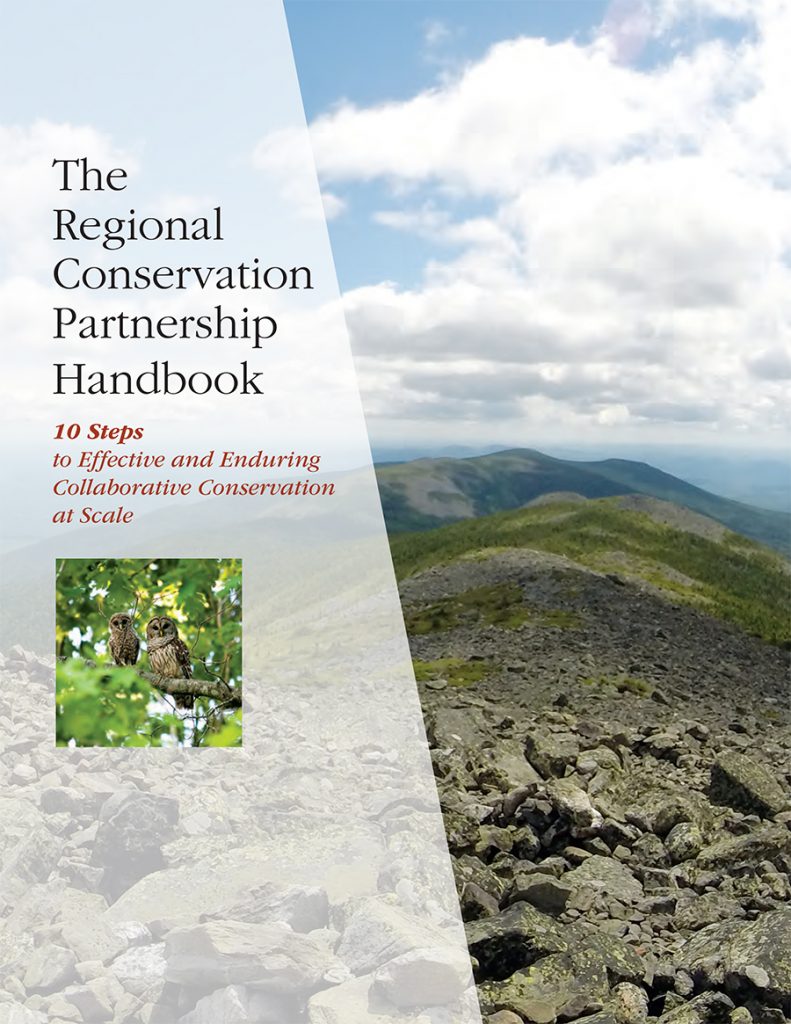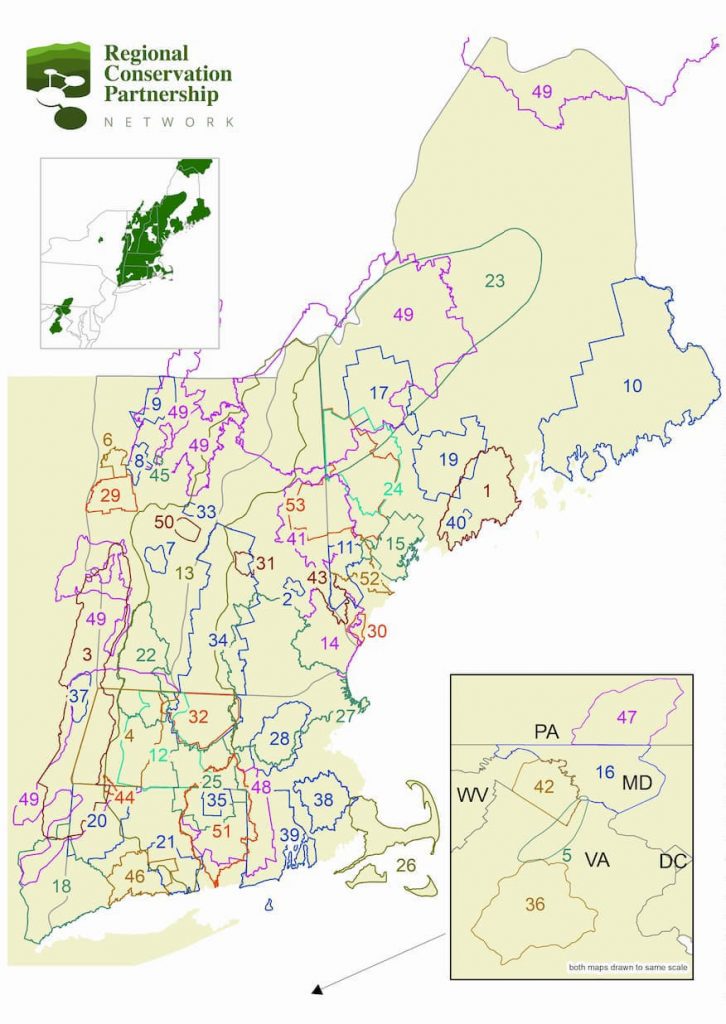Over the past few decades, people across New England and the East Coast have organized and advanced Regional Conservation Partnerships (RCPs) to increase the pace and scale of land protection and stewardship in the service of a shared conservation vision across property, town, state, and sometimes regional boundaries. Highstead coordinates, researches, and convenes RCPs in networks helping their members and RCPs innovate and accomplish more with regional partners like foundations, colleges and universities, conservation organizations, and state and federal agencies.
New England roots
As the birthplace of the original U.S. land trust movement, New England has a robust history of protecting and stewarding land for its ecological, social, and economic value. Land trusts began as an effective strategy to help local landowners conserve individual parcels of land but by the 1990s, these groups learned that they could do more by working together. They formed collaborations, or RCPs,—made up of land trusts, town leaders, state and federal agencies, academic institutions, conservation organizations, and others—that worked to conserve land not just based on opportunity, but guided by shared, strategic, long-term conservation priorities.
Building capacity and understanding
Highstead worked with individual RCPs in the early 2000s and began to quickly see a demand for further collaboration between RCPs. Today, Highstead supports RCPs by:
- Coordinating the RCP Network
- Convening events like the RCP Network Gathering and RCP Coordinator calls
- Increasing the effectiveness of RCPs through collaborative leadership training
- Defining and advancing the work of RCPs through original research, reports, and resources including the RCP Handbook
- Assisting and mentoring RCP leaders through webinars, training programs, and one-on-one sessions
- Guiding collaborative grant applications
- Cultivating relationships with regional partners, foundations, NGOs, and federal and state governments
Sustained growth
In the 1990s there were four RCPs in New England and today there are 47 including three in New York, covering more than 60% of the regional landscape. With Highstead’s help, collaboration has become increasingly common, creating a higher level of cross-boundary cooperation and fostering a strong ethic of collaborative, innovative landscape conservation. The RCP Handbook continues to help both emerging and established RCPs grow, with several new RCPs being formed each year. RCPs are beginning to be adopted in the Mid-Atlantic states in which there are now five RCPs in four states.
As this movement continues to grow, RCPs are increasingly playing an important role in mitigating climate change, protecting the most climate-resilient biodiverse habitats, natural resources like clean water, and developing more economically and environmentally resilient communities. To meet the evolving needs of stakeholders and funders, RCPs are quickly adapting to a broader scope that includes engaging more underserved communities and seeking conservation solutions for urban areas and preserving farmland for young and immigrant farmers. This expanded, more inclusive approach marks a larger shift in collaborative conservation thinking, aiming to create a sustainable future for all people in all communities.

